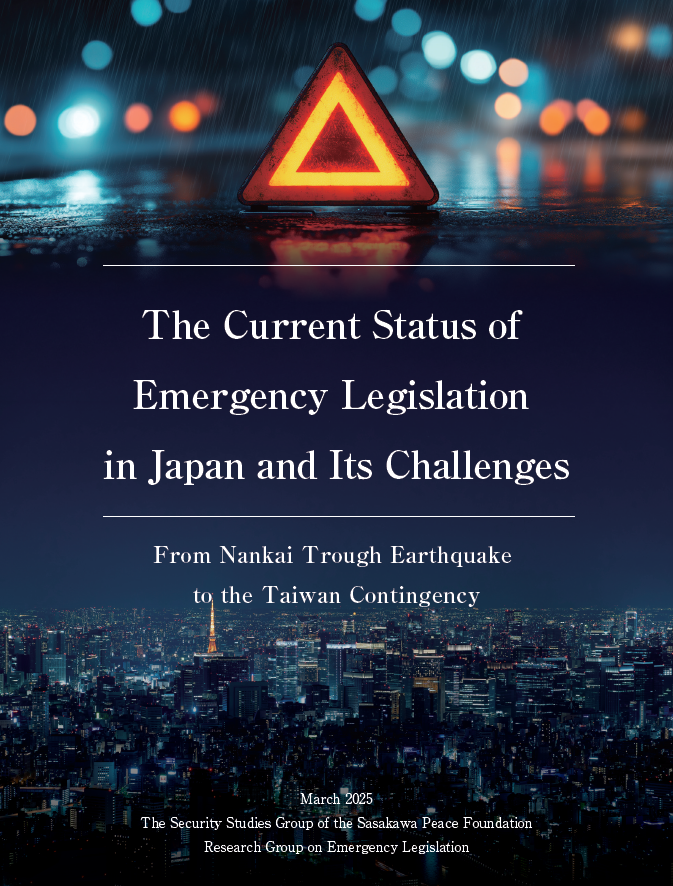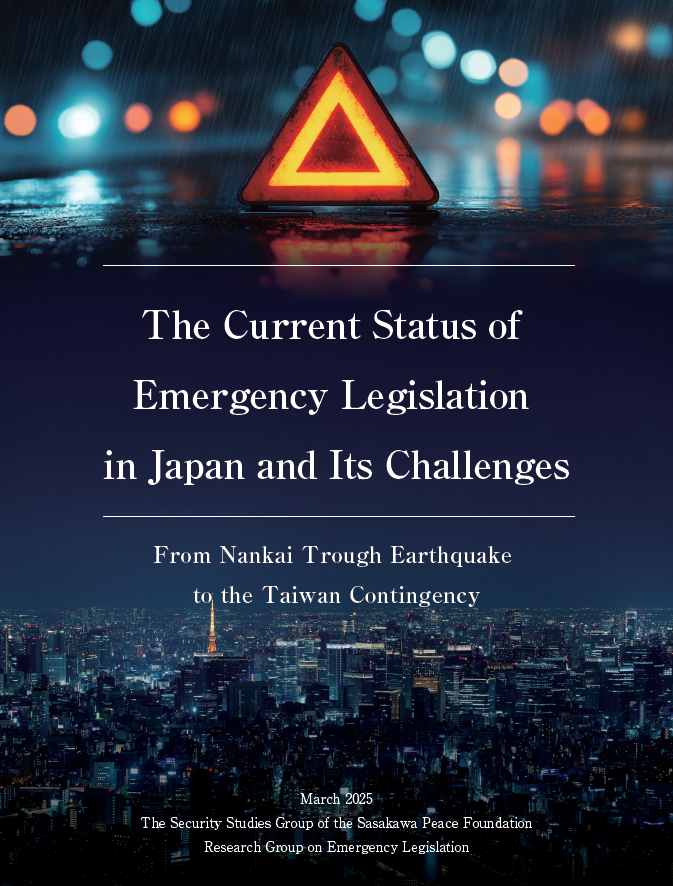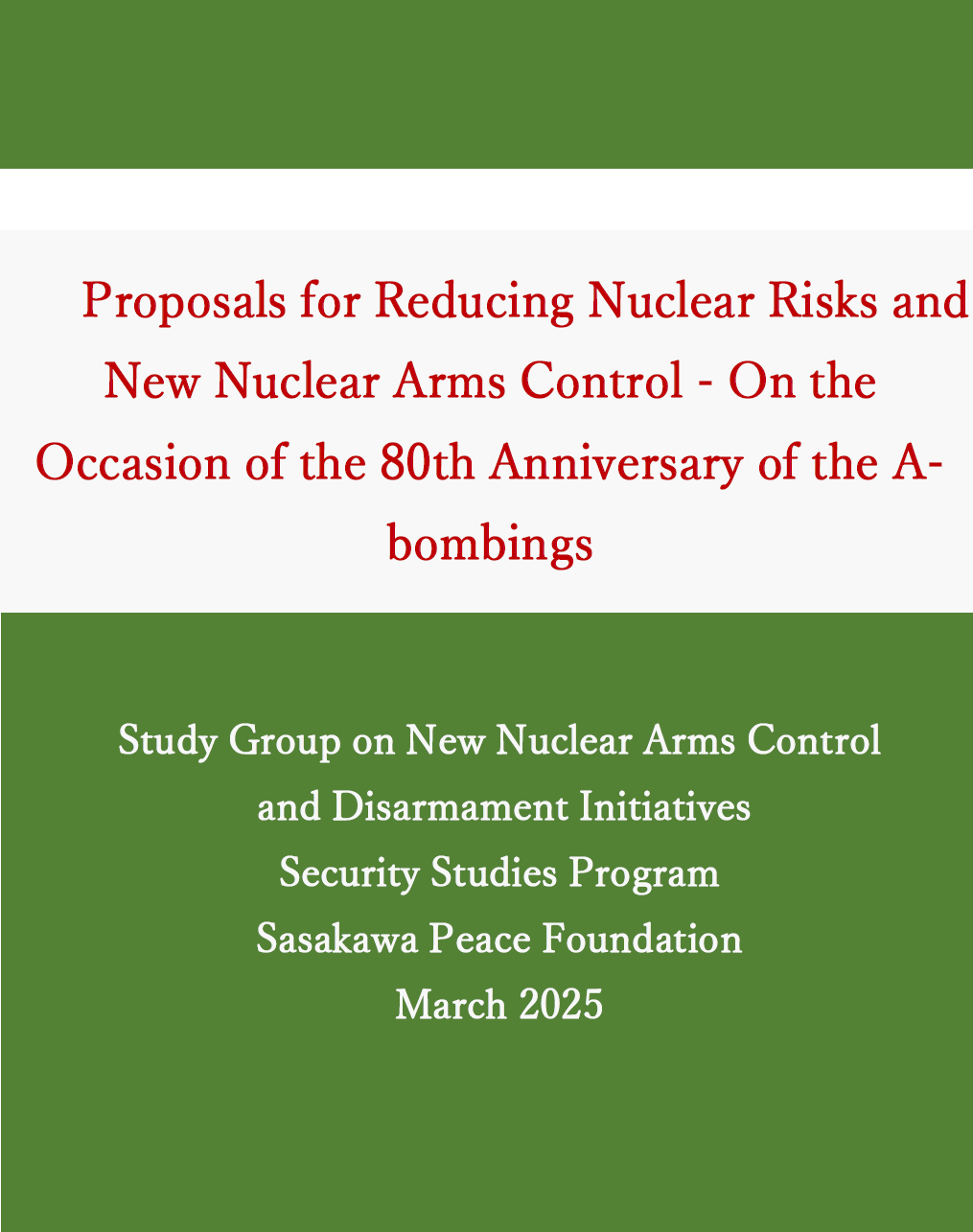
Policy Recommendation
Report: The Current Status of Emergency Legislation in Japan and Its Challenges~From Nankai Trough Earthquake to the Taiwan Contingency
July 28, 2025
In the midst of increasing focus on the impact of new types of disasters such as cyberattacks, as well as a growing sense of urgency about the security environment surrounding Japan, the Security Studies Program of the Sasakawa Peace Foundation established the "Emergency Legislation Study Group" in FY 2023 to re-examine Japan's emergency legislation and response mechanisms. In addition to identifying specific issues for Japan, including responses to individual disasters as well as complex disasters, the study group took a comparative perspective by examining how legislation in various countries defines emergencies and what authority is given to the government, focusing on major European countries and the U.S.
This five-person study group consists of practitioners and experts involved in responding to large-scale natural disasters and pandemics, as well as members with experience in creating emergency legislation. On the occasion of the 30th anniversary of the Great Hanshin-Awaji Earthquake and the subway sarin gas attack in Tokyo, the study group has compiled this report based on past discussions and research to make recommendations to the Japanese government to improve the effectiveness of emergency response and to encourage widespread interest in this topic.
Click here to download the report.
This five-person study group consists of practitioners and experts involved in responding to large-scale natural disasters and pandemics, as well as members with experience in creating emergency legislation. On the occasion of the 30th anniversary of the Great Hanshin-Awaji Earthquake and the subway sarin gas attack in Tokyo, the study group has compiled this report based on past discussions and research to make recommendations to the Japanese government to improve the effectiveness of emergency response and to encourage widespread interest in this topic.
Click here to download the report.
Description
| Date of Publication | March 2025 |
| Content | Chapter 1 “Emergency Response and Legal Basis - Examination by Event” examines how the current legal systems apply to individual emergency events. We illustrated the laws and mechanisms for addressing each of the three stages—Prevent/Prepare, Detect, and Respond—and identified the challenges. Regarding “Respond,” detailed descriptions were given by classifying them into negligence and intentional actions. Chapter 2 “Examination of scenarios involving compound events through the method of scenario planning” - Submarine cable sabotage and biological and chemical terrorism - Cyberattacks against financial institutions and large-scale blackouts: Hidden pitfalls in climate change action and renewable energy - Mt. Fuji eruption and nuclear accident occurring in conjunction with the Nankai Trough earthquake Chapter 3: “Examination of Issues Concerning Emergency Response and the Constitution” sought to identify challenges in Japan’s emergency legislation through comparative analysis with overseas cases. We compared the Japanese system with those of the United States, the United Kingdom, France, and Germany. Each country has developed its own emergency legislation by reflecting its specific national circumstances. The development and revision of these legal frameworks reflect the histories, disasters, and wartime experiences that they have followed respectively and differences can be observed among countries. On the other hand, a shared problem for all countries is how to simultaneously prevent the abuse of authority and improve the effectiveness of emergency response. Chapter 4, “Recommendations on Contingency and Emergency Response in Japan” presents recommendations to the Japanese government from the “Research Group on Emergency Legislation,” based on the previous discussions. |

